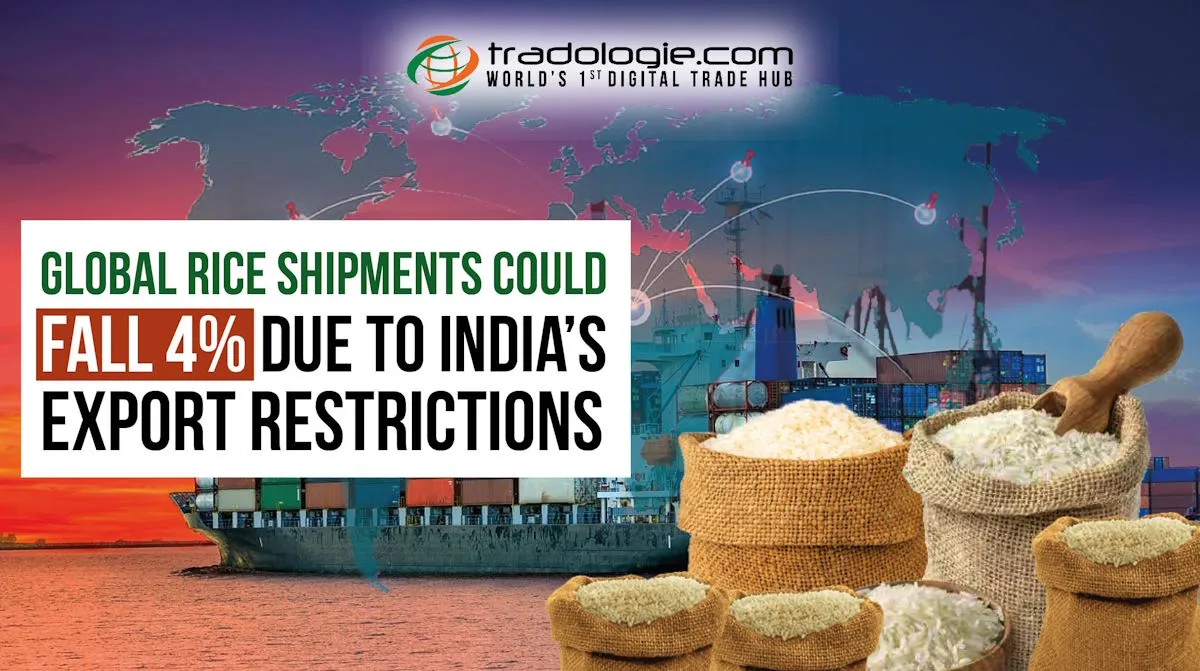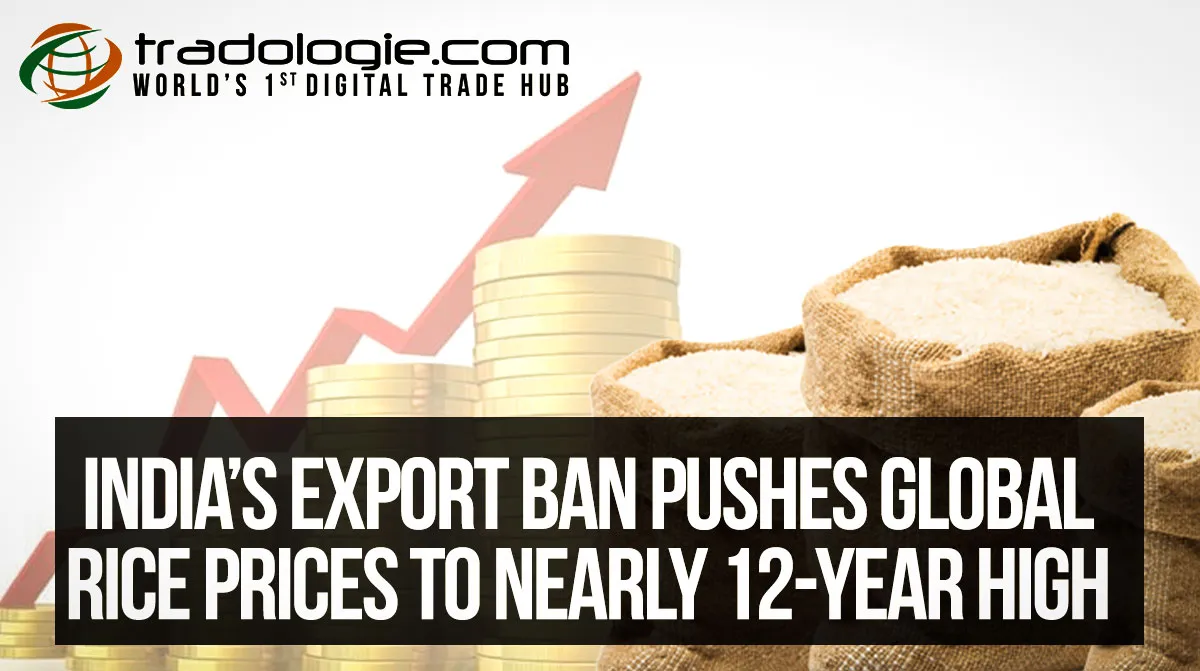After India’s ban on the export of non-white basmati rice, the whole world is in shock as India is the major rice exporter of the world. This significant disruption in the global rice market raised concerns about the food security in rice-importing countries of the world.
The latest update from the Baltic and International Maritime Council (BIMCO) indicates that the Indian government's decision to expand its export ban to include all non-basmati white rice in July 2023 has had an intense impact on the world's rice markets, may cause 4% decline in the global rice shipments. This sudden move by India, which accounts for nearly 40% of global rice exports, has led to a surge in rice prices, reaching their highest levels in over a decade.
Filipe Gouveia, a Shipping Analyst at BIMCO, warns that the repercussions of India's export restrictions are significant. "Global rice exports could fall by at least 4% in 2023 because of India’s restrictions on exports and El Nino’s impact on supply," says Gouveia. El Nino-induced low rainfall has further exacerbated the situation, weakening the outlook for global rice exports in 2024.
India’s Rice Export Ban Impact on the World
Although there were concerns that other rice-exporting nations might follow India's lead and impose similar export restrictions, Myanmar is the only country to have temporarily banned rice exports, for a period of 45 days.
In response to the higher rice prices, countries such as Thailand, Vietnam, and Pakistan have increased their rice exports, attempting to fill the void left by India's rice reduction. However, these efforts have not been sufficient to fully compensate for the reduction in Indian rice exports.
Gouveia points out, “While rice constitutes under one percent of dry bulk cargo, India's export restrictions will add further pressure to the already tight global grain supplies. Overall, we estimate global grain shipments will fall between 1.5% and 2.5% in 2023.”
Rice, typically transported by smaller bulk ships in the handysize and supramax segments, differs from other bulk commodities due to its relatively small export volumes and a lack of dominant import countries. Interestingly, rice can also be transported in containers, given its lower volume when compared to most other bulk commodities.
Despite the down outlook for rice exports, there is hope for a potential recovery in global grain shipments in 2024, estimated to be between 3% and 4%. This revival could be driven by an increase in shipments of feed grains like maize and soybeans. However, the tight supplies of food-grade grains such as wheat and rice are expected to continue, potentially increasing inflationary pressures in the global food market.
The Bottom Line
In conclusion, India's strict export restrictions on rice, combined with the weather-related challenges posed by El Nino, are hovered to have a deep and lasting impact on the global rice market. As rice prices continue to surge and the world suffers from supply shortages, the adaptability of global grain markets will be put to the test in the coming years.
Tradologie.com is the ideal website for you if you are a rice importer looking to buy rice in bulk or a rice exporter looking to export bulk rice.
More than 70,000+ registered sellers of agro-commodities from more than 150 countries are part of the platform's transaction-oriented community of over 600,000+ verified buyers.
Buyers and sellers of the agro commodity can easily sign up to take advantage of increased earnings and ease in the trading process through chances given by the platform on a daily basis. Tradologie facilitates bulk rice exports and imports throughout the globe.
To register as a buyer, click here. To register as a seller, click here.
Follow Tradologie.com on all social media platforms to remain up to date with the newest events in the agro-trade sector.





